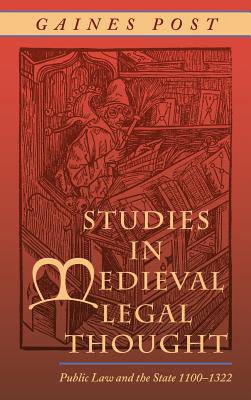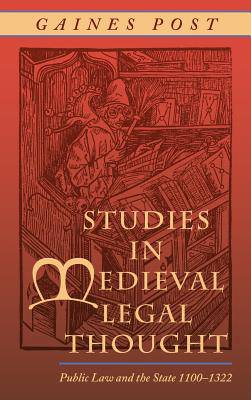
- Afhalen na 1 uur in een winkel met voorraad
- Gratis thuislevering in België vanaf € 30
- Ruim aanbod met 7 miljoen producten
- Afhalen na 1 uur in een winkel met voorraad
- Gratis thuislevering in België vanaf € 30
- Ruim aanbod met 7 miljoen producten
Zoeken
€ 78,45
+ 156 punten
Uitvoering
Omschrijving
Roman Law's Influence on Public Law and the State This collection of eleven distinguished essays explores the revival of Roman law and its subsequent influence on the development of public law and early modern theories of the state. "This very fine book deserves to be judged as something more than a mere collection of scattered essays. There is an impressive unity of thought and argument running through all the various studies, and together they form a coherent and extremely valuable contribution to a recent movement of thought that has been reshaping our understanding of the principles on which medieval government was based."--Brian Tierney, Harvard Law Review 78 (1964-1965):1502 GAINES POST [1902-1987] received an M.A. in 1925 and Ph.D. in 1931 at Harvard University. He researched medieval history and culture at the Ecole de Chartres in France from 1927-1928 and also conducted research in Italy, Germany, and England. Post was a member of the Department of History at the University of Wisconsin, Madison, from 1935 to 1941, a lecturer at the Riccoboro Seminar in 1947, and a lecturer at the Medieval Institute at the University of Notre Dame. Some of his many accomplishments include a Fulbright research award to France in 1951-1952, two Guggenheim Fellowships (1939-1940 and 1955-1956) and an honorary fellowship in the American Society for Legal History. While an instructor at Princeton University from 1959-1960 he was the chairman of the Institute of Research and Study in Medieval Canon Law. In 1954 he accepted a faculty position at Princeton University, where he remained until his retirement in 1970.
Specificaties
Betrokkenen
- Auteur(s):
- Uitgeverij:
Inhoud
- Aantal bladzijden:
- 650
- Taal:
- Engels
Eigenschappen
- Productcode (EAN):
- 9781584776925
- Verschijningsdatum:
- 9/10/2012
- Uitvoering:
- Hardcover
- Afmetingen:
- 152 mm x 229 mm
- Gewicht:
- 1115 g

Alleen bij Standaard Boekhandel
+ 156 punten op je klantenkaart van Standaard Boekhandel
Beoordelingen
We publiceren alleen reviews die voldoen aan de voorwaarden voor reviews. Bekijk onze voorwaarden voor reviews.








